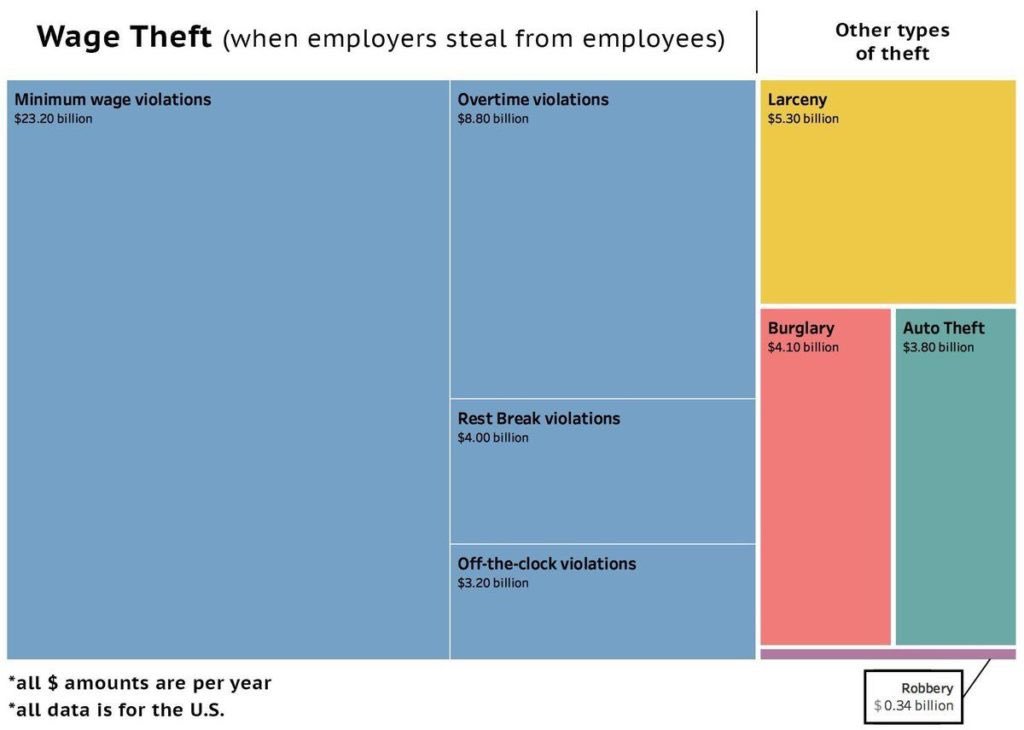Sunday, 12 July 2020 - 4:23pm
This week fortnight, I have been mostly reading:
- Beer Mats of the 1970s — Scarfolk Council:


More… - 'All Watched over by Machines of Loving Grace': Care and the Cybernetic University — Audrey Watters:
If there is one message that I want to get across to you today, it is that we must ground our efforts to plan for the fall — hell, for the future — in humanity, compassion, and care. And we cannot confuse the need to do the hard work to set institutions on a new course of greater humanity with the push for an expanded educational machinery. We have to refuse and refute those who argue that more surveillance and more automation is how we tackle this crisis, that more surveillance and AI is how we care. We can trace the histories of our schools, our beliefs and practices about teaching and learning, our disinvestment in public institutions, our investments in technological solutions to discover how and why we got here — to this moment where everything is falling apart and the solution (from certain quarters) is software that sounds like "panopticon."
- Strange Bedfellows Undermining Liberalism: Trump And Academia — Bo Rothstein in Social Europe:
It is obvious that, according to Trump, there is nothing that can be seen as a fact. Instead, everything is a matter of interpretation and perspective. However, this approach has also had a strong impact in large parts of academic research, mainly within the humanities, but also within parts of social sciences. Under the heading “postmodernism”, this approach has as its starting point that there can be no true or scientifically established facts due to impartial investigation. Instead, following the much-admired French philosopher Michel Foucault, what is considered true by the scientific community in an area of research is in reality determined by their connection to established power relations in society. According to postmodernist theory, there is no real difference between the knowledge produced by scientific methods and perceptions coming from our ideological orientations or personal experiences. Thus, when Trump and his supporters claim that they base their positions on “alternative facts”, this has a clear connection to the postmodernist approach in academia.
- Ward Sutton:

- How to Use the Past Exonerative Tense to Uphold White Supremacy — Devorah Blachor:
The term “past exonerative tense” was first coined by political analyst William Schneider to describe a construction used by political leaders, which enabled them to acknowledge wrongdoing while absolving themselves of responsibility. Ronald Reagan is thought to be the first American president to employ the past exonerative tense during the Iran-Contra scandal, using a variation of the “mistakes were made” non-apology. […] The past exonerative tense transforms acts of police brutality against Black people into neutral events in which Black people have been accidentally harmed or killed as part of a vague incident where police were present-ish.
- via Bruce Sterling:

- American Passports Are Worthless Now (Map) — Indi Samarajiva on Medium:
It’s not that other nations don’t want to welcome Americans, they just can’t. The point of a passport is that a sovereign power vouches for its bearer, but America can’t vouch for the health of their citizens at all. America’s public health regime is far less trustworthy than Liberia’s (which is actually quite good). Its sovereign is mad. At the same time, you can’t trust Americans. Americans have poor hygiene (low masking rate) and at least 40% of the population can’t be trusted to even believe that COVID-19 exists, let alone to take it seriously. They’re likely to refuse testing, not report symptoms, break quarantine, and generally NOT follow rules. Americans have a toxic combination of ignorance and arrogance that makes them unwelcome travelers. They have a lot of problems, and they’re bringing those problems with them. Some of them, I assume, are good people, but it doesn’t matter. It’s a plague passport. Return to sender.
- Full Employment — Cory Doctorow in Locus Online:
I am an AI skeptic. I am baffled by anyone who isn’t. I don’t see any path from continuous improvements to the (admittedly impressive) ”machine learning” field that leads to a general AI any more than I can see a path from continuous improvements in horse-breeding that leads to an internal combustion engine. Not only am I an AI skeptic, I’m an automation-employment-crisis skeptic. That is, I believe that even if we were – by some impossible-to-imagine means – to produce a general AI tomorrow, we would still have 200-300 years of full employment for every human who wanted a job ahead of us. I’m talking about climate change, of course.
- Tom Toles:
- What Is It Like to Be a Man? — Phil Christman in the Hedgehog Review:
“What is it like to be a cis-gendered, heterosexual man?” a friend, a trans man, asks on Facebook. “What is it like to feel at home in your body?” The only answer I can come up with is that I never feel at home in my body. I live out my masculinity most often as a perverse avoidance of comfort: the refusal of good clothes, moisturizer, painkillers; hard physical training, pursued for its own sake and not because I enjoy it; a sense that there is a set amount of physical pain or self-imposed discipline that I owe the universe. […] Manhood resists straightforward discussion even as men stand accused—correctly, insofar as any accusation directed at such a broad target cannot fail to hit—of sucking the air from every other conversation. We do have plenty of talk about masculinity, but talk is all it is, aimless and nonconsecutive, never the sense of anything developing. Sophisticated opinion rarely gets beyond the elementary observation that masculinity is a social construct, or a set of many such constructs. As for unsophisticated opinion, it is a dank cellar most impressively represented by the Canadian academic Jordan Peterson, who bangs the table for logic and reason while basing much of his thought on the ideas of a discredited occultist. Peterson’s reliance on the work of Carl Jung is revealing: If you want to defend traditional masculinity as a kind of slaying-dragons-for-its-own-sake, but you can’t offer a rational analysis of why this behavior is necessary, or why it is good, or why you need a penis to do it, the archetype theory offers you a pretentious and grandiose way of saying “It is what it is.” It dignifies tautology. Beneath Peterson, deeper in the cellar, are the vitamin-hawking conspiracy theorists, rape apologists, and Nazis of YouTube, whose pronouncements on masculinity eerily combine the commonsensical with the obscene: one video to tell you how to tie a Windsor knot, another to tell you how to beat a restraining order. But they finally impugn themselves. If you need a YouTube video to help you be a man, then in some essential sense simply being one is already off the table.
- I Have Cancer. Now My Facebook Feed Is Full of ‘Alternative Care’ Ads. — Anne Borden King in the New York Times:
When I saw the ads, I knew that Facebook had probably tagged me to receive them. Interestingly, I haven’t seen any legitimate cancer care ads in my newsfeed, just pseudoscience. This may be because pseudoscience companies rely on social media in a way that other forms of health care don’t. Pseudoscience companies leverage Facebook’s social and supportive environment to connect their products with identities and to build communities around their products. They use influencers and patient testimonials. Some companies also recruit members through Facebook “support groups” to sell their products in pyramid schemes. Through all this social media, patients begin to feel a sense of belonging, which makes it harder for them to question a product. Cancer patients are especially vulnerable to this stealth marketing. It’s hard to accept the loss of control that comes with a cancer diagnosis. As cancer patients, we are told where to go, how to sit and what to take. It can be painful and scary and tiring — and then all our hair falls out. During the pandemic, many of us are also isolated. Our loved ones can’t come to our appointments or even visit us in the hospital. Now, more than ever, who is there to hold our hand?
- Life During COVID-19 — Ted Rall:

- MMT — Keynesianism with an expansionary twist — Lars Pålsson Syll:
[Lance] Taylor may be right on the question of how much — as a macroeconomic theory — MMT really has added to the Keynes-Lerner-Godley-Minsky framework. But there is undoubtedly at least one positive contribution of MMT — especially from a European point of view — and that is that it has made it transparently clear why the euro-experiment has been such a monumental disaster. The neoliberal dream of having over-national currencies just doesn’t fit well with reality. When an economy is in a crisis, it must be possible for the state to manage and spend its own money to stabilize the economy. When the euro was created twenty years ago, it was celebrated with fireworks at the European Central Bank headquarters in Frankfurt. Today we know better. There are no reasons to celebrate the 20-year anniversary. On the contrary.
- After Barr Ordered FBI to “Identify Criminal Organizers,” Activists Were Intimidated at Home and at Work — Chris Brooks:
“I’ve never had any run-ins with the cops before. I’ve never been to jail and have no criminal record, so when the FBI showed up to my workplace, it scared the piss out of me,” says Katy, a 22-year-old who works for a custodial services company in Cookeville, a small college town in middle Tennessee. “I really thought I was going to lose my job. The whole experience was terrifying.”
- Unpresidented — Fintan O’Toole in the New York Review of Books:
Nixon was forced out because Republican-appointed judges and Republican members of Congress joined with Democrats to reassert constitutional checks on the abuse of presidential power. Now the Republican Party is a wholly owned subsidiary of Trump Entertainment Resorts Inc. Trump’s wild response to the coronavirus disaster and to the Black Lives Matter protests must be seen in connection with the refusal of the Republican-controlled Senate even to go through the motions of a trial after his impeachment by the House. “Unshackled,” like he wished the cops to be, from any notion of accountability, Trump has also become unmoored from any relationship to reality. The Senate Republicans told him, in effect, that he can exercise power arbitrarily. Absolute power deranges absolutely. During the 2016 election campaign, Trump was asked about whom he consulted on foreign policy: “I’m speaking with myself, number one, because I have a very good brain. My primary consultant is myself.” Freed from any need to pretend that there is anyone else he might possibly need to talk to, Trump is now openly talking to himself in public. He is, often on live TV, communing with the voices in his head that tell him that he is a combination of Lincoln and Churchill, that coronavirus will suddenly vanish, that it can be cured by ingesting disinfectant, that Joe Scarborough is a murderer, that George Floyd is looking down on him and rejoicing.
